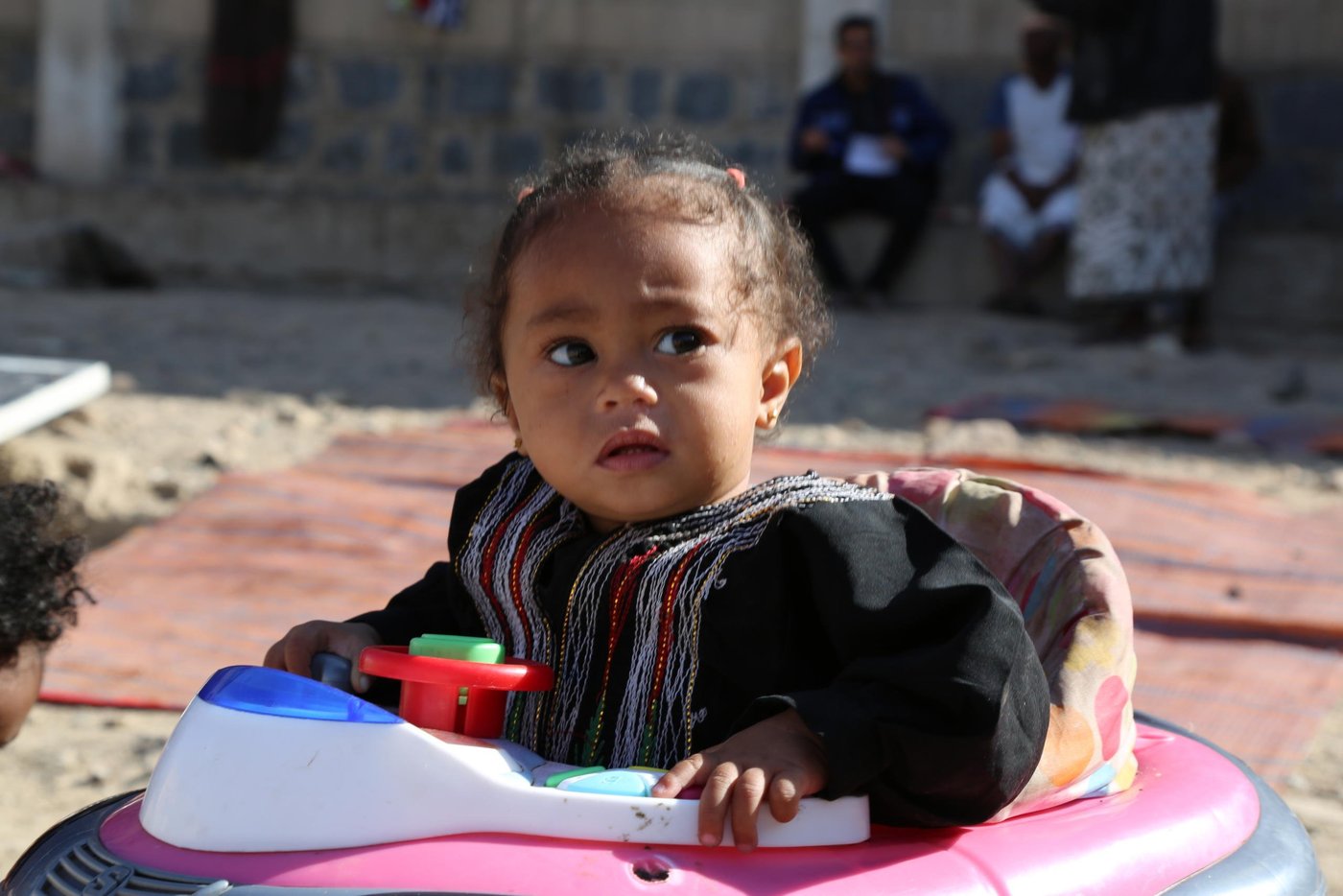Since 2015, Al-Fajr Al-Jadeed School has been home to 51 displaced families. These families were forced to flee when their homes became a conflict zone. The school provides a safe refuge for the families, but due to the impact on education, authorities are increasingly attempting to evict them – without providing a safe alternative.
The father
Al-Raboui Adbu Saeed is in his 50s and is a father of eleven children. He is from an area of Taiz city where hundreds of families live in informal settlements. The families are part of a minority ethnic group called Muhamasheen. The group has long suffered from discrimination, poverty and exclusion.
Al-Raboui was proud of the life he had. He worked as a driver for a cleaning company and his salary was enough to cover all basic commodities. He saw his home as his castle. But this all changed when the conflict arrived in Taiz.
“When battles arrived in the area we immediately fled because delaying may have led to casualties among civilians. Battles don’t differentiate between civilians and fighters,” Al-Raboui says.

Al-Raboui’s family, and others in his community, found refuge at the school, 70 km from home. The school had been transformed into a camp for displaced people, and Al-Raboui says that they were welcomed at the school by both residents and the local authorities.
But now, the overcrowding in the few classrooms still available is causing disputes between those residing there and the teachers and parents who want their children to continue learning.

The teacher
Salah Alwan Al-Asbahi is a history teacher at the school. He confirmed that the residents are the main barrier to resuming the regular educational process in the school.
“We need a compromise that finds an alternative place for the displaced families,” Salah says. “We need this for the educational process to continue in a good way.”
“The displaced families are brothers to us, and they deserve a decent life like us, but we don’t want their presence to affect the educational process,” he adds.
There are more than 1,200 students learning in just 11 classrooms in the available school building. Many others have left to attend schools further away.

No safe alternative
In response to the impact on education, the local authorities provided the displaced families with alternative land. However, it wasn’t safe for them.
“We took ten tents and went to erect them in the new land,” Al-Raboui recalls. “But the owner of the land came and stopped us.”
Al-Raboui contacted the leader of the area, as well as the local authorities. They agreed to meet the next day to resolve the dispute with the owner. But this was unsuccessful, and the families returned to the school later that night.
“The residents and the local authorities demand that we leave the school because they need it. We agree, but we can’t return to our houses and we don’t know any other safe place to go.”

An uncertain future
The displaced families are unable to return to their homes in Taiz city as the battles are still ongoing, and they have adapted well into their life in displacement. But new challenges continue to emerge.
The father and the teacher agree that displacement should not prevent children from going to school, but that everyone deserves a safe place to call home.
“It is impossible to return to our houses now. We are willing to leave the school but we need a safe place for us and our children,” Al-Raboui says.
The conflict in Yemen is now entering its sixth year. It is estimated that 3.6 million Yemeni people are now displaced from their homes. Yemen was the poorest country in the Middle East before the conflict even began, and so many civilians do not have the funds to find alternative housing, or to travel to other countries to seek refuge. An end to the conflict is desperately needed so that the displaced can return to their homes, and so that children can continue to learn in peace.
“All we need is to live peacefully,” Al-Raboui concludes.


